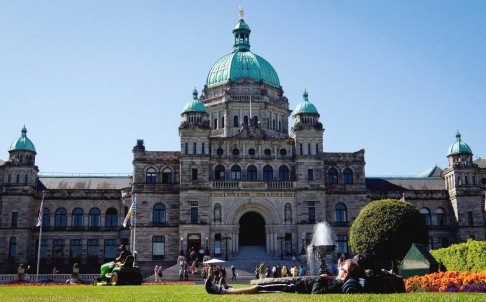Rich Chinese immigrants' deception costs British Columbia billions
Province misses out on its promised loans as rich Chinese claim they are settling elsewhere
PUBLISHED : Thursday, 09 October, 2014, 5:17am
UPDATED : Thursday, 09 October, 2014, 12:15pm
Ian Young in Vancouver [email protected]

Data suggest at least 53 per cent of all Chinese known to have settled in British Columbia under the IIP said they planned to live elsewhere.
Most of the 30,000 rich Chinese who have recently moved to British Columbia told authorities they would settle elsewhere in Canada, with the deception costing the province access to billions of dollars in loans.
An investigation by the South China Morning Post revealed the widespread illicit practice, which is demonstrated in a huge discrepancy between approval and arrival numbers of Chinese in BC under the Immigrant Investor Programme (IIP). The Post's revelations come as Ottawa prepares to unveil a wealth migration scheme to replace the federal IIP, which was axed in June.
The huge influx of rich Chinese is already a hotly debated issue in Vancouver, which has seen property prices soar.
From 2005 to 2012, a total of 29,764 rich Chinese, mostly from the mainland but also from Taiwan and Hong Kong, are known to have moved to BC under the programme, which required applicants to loan Canada C$800,000 (HK$5.54 million) per family and have minimum assets of C$1.6 million. Yet in the same period, only 13,872 certificates of permanent residency were issued to applicants from greater China who nominated BC as their intended destination.
This suggests at least 53 per cent of all Chinese known to have settled in BC under the IIP said they planned to live elsewhere. Immigration experts said this was mainly done to secure preferential treatment - for instance, by applying via Quebec's independently run IIP to bypass the queue for the now-defunct federal version of the scheme.
Because the IIP's loan funds are disbursed to the provinces according to the stated destination of migrants, the deception has cost BC access to about C$2 billion in interest-free five-year loans, the Post calculates.
Among mainland Chinese, at least 60.3 per cent of arrivals in BC practised the apparent deception. And because mainland Chinese dominated the IIP, they represented 86.8 per cent of all apparent deceivers.
The Post's data represents the first effort to publicly quantify the scale of the illicit practice.
An immigration expert in Canada, who did not wish to be named, blamed consultants in China for encouraging immigrants to practise the deception.
"Some advise the applicants to travel to Quebec, then do a nominal registration there, but then go and live wherever they want. In my experience, that happens quite often," he said.
Citizenship and Immigration Canada was given a week to scrutinise the SCMP’s calculations and did not dispute their accuracy. Asked in writing if it was previously aware of the scale of the deception, whether it was fair on BC, and whether those who practised the deception should be punished, CIC spokeswoman Nancy Caron said only: “Immigrants are expected to settle in the province to which they apply.”
Details of a new wealth-based migration scheme to replace the IIP would be unveiled “in the coming months”, Caron added.
While Canada requires immigrants to accurately state their intended destination province, this pledge is difficult to enforce. Immigrants could simply argue that they truthfully intended to move to, say, Quebec, but upon arrival in Canada immediately changed their minds and decided to live in BC.
Preventing a permanent resident from living where they choose would likely breach the Charter of Rights and Freedoms.
